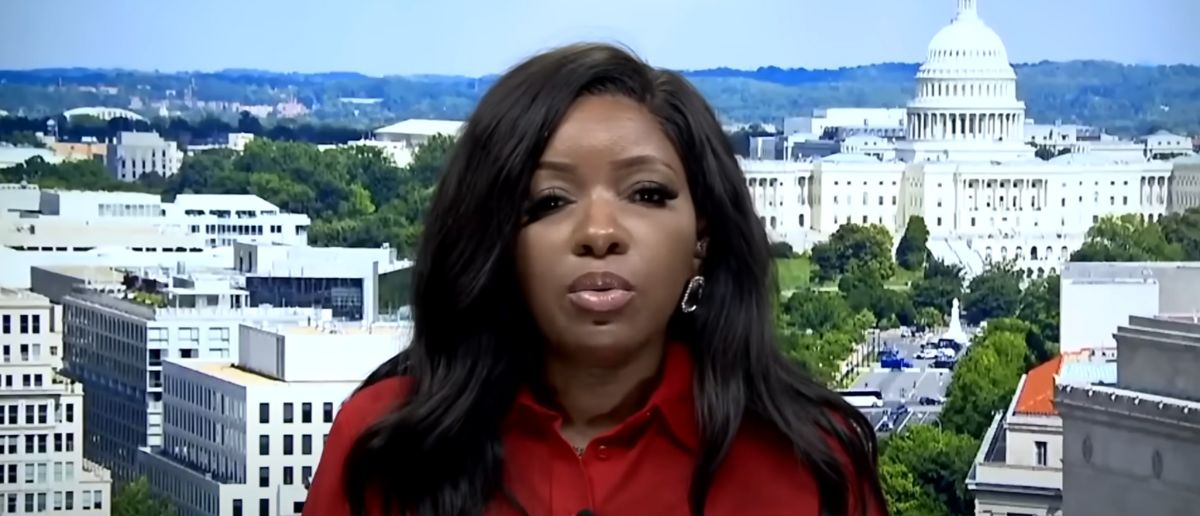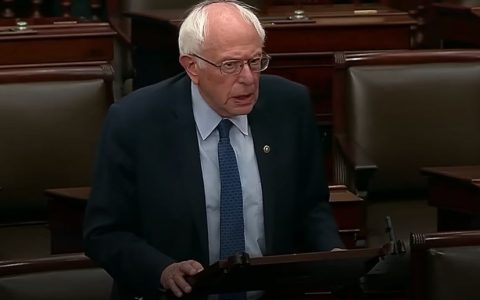
Democrats are lashing out. They can’t stand that their house of cards are falling.
That’s why a Democrat Congressmember went postal and threatened journalists at a major newspaper.
Texas Congresswoman’s Media Profile Causes Meltdown
Texas Democratic Representative Jasmine Crockett attempted to block a detailed profile by The Atlantic after learning the journalist contacted her congressional peers without her consent. Elaine Godfrey, a reporter for The Atlantic, reached out to numerous Democratic House members, including those on the Oversight and Judiciary Committees, to gather perspectives on Crockett for an in-depth article.
Just days before the piece was set to publish, Crockett voiced irritation upon discovering Godfrey’s outreach to her colleagues without prior notification, threatening to cancel the entire profile.
“As for her colleagues, four days before this story was published, Crockett called me to express frustration that I had reached out to so many House members without telling her first. She was, she told me, ‘shutting down the profile and revoking all permissions,’” Godfrey noted in the article.
Of the many lawmakers contacted, 13 members of the Oversight and Judiciary Committees and 20 other Democrats either ignored or declined Godfrey’s requests for comment. Texas Democratic Representative Julie Johnson, however, offered praise, stating she was “thrilled” with Crockett, though she acknowledged that some colleagues find her confrontational style divisive.
According to Godfrey, senior aides to three Democratic House members described Crockett as “undisciplined,” though they avoid airing such views publicly. The Atlantic’s profile also highlighted Crockett’s focus on her public image, noting that she uses her own headshot as her phone’s lock screen. Crockett expressed frustration that her party overlooked her for the Oversight Committee chairmanship, arguing her significant social media presence made her a strong candidate.
During an interview at the Waldorf hotel in Atlanta, Crockett openly reprimanded a staffer for a vague schedule note and criticized another for delivering food in a paper bag she deemed unappealing.
The profile also touched on Crockett’s time at Rhodes College, where she and other Black students allegedly faced “racist threats.” Crockett spoke highly of a Black female attorney from the Cochran Firm who represented them, calling her a “shero.” However, she couldn’t recall the attorney’s name, and the Cochran Firm had no record of such a case involving Crockett.
Some interesting details from The Atlantic's profile of Rep. Jasmine Crockett:
1. Her phone's lock screen is a photo of herself
2. She thought she deserved to be the top Dem on Oversight because she has the largest social media following
3. She tried to shut down the profile… pic.twitter.com/CvRlFtRNkd— Amber Duke (@ambermarieduke) July 28, 2025
Why Jasmine Crockett and Similar Progressives Face Pushback from Mainstream America
Representative Jasmine Crockett, a Texas Democrat, has emerged as a polarizing figure in Congress, embodying a style of progressive politics that often clashes with the preferences of many Americans. Her confrontational approach, focus on personal branding, and unapologetic rhetoric highlight a trend among some progressive lawmakers that critics argue veers too far from the priorities of the average voter. This article examines why Crockett and like-minded radicals are seen as too extreme for much of the U.S. electorate, drawing on recent analyses and public sentiment.
Crockett’s aggressive communication style, as noted by her colleagues, often overshadows substantive policy discussions. During her tenure, she has prioritized high-profile media moments over coalition-building, a strategy that appeals to a narrow but vocal base. Political analysts, such as those writing for The Hill in 2025, note that such tactics alienate moderate Democrats and independents who value pragmatism over performative gestures. This disconnect is evident in her reported frustration over not securing the Oversight Committee chairmanship, where she emphasized her social media following rather than legislative accomplishments.
The progressive movement, including figures like Representatives Alexandria Ocasio-Cortez and Ilhan Omar, often faces similar criticism. A 2024 Pew Research study found that 62% of Americans view the far-left wing of the Democratic Party as too ideologically driven, prioritizing issues like defunding the police or aggressive climate policies that lack broad support. Crockett’s alignment with these ideas, coupled with her combative demeanor, amplifies perceptions of extremism that don’t resonate with voters focused on economic stability or incremental reform.
Crockett’s public image, meticulously curated to project strength and visibility, can come across as self-aggrandizing. Her use of a headshot as her phone’s lock screen and her sensitivity to media portrayals suggest a focus on personal branding that critics argue detracts from governance. A 2025 analysis by Politico highlighted that voters often distrust politicians who prioritize fame over policy substance, a sentiment that hurts progressive figures like Crockett who lean heavily into media exposure.
Economic concerns complicate matters even more for progressives. Many Americans, according to a 2025 Gallup poll, prioritize job creation, affordable healthcare, and reducing inflation over the social justice issues championed by radical progressives. Crockett’s advocacy for sweeping systemic changes, while energizing for some, often feels disconnected from the immediate needs of working-class families in her district and beyond.
Her behavior toward staff, as detailed in The Atlantic, also raises questions about leadership style. Publicly scolding aides for minor errors, such as a vague schedule note or unappealing food packaging, paints a picture of volatility that contrasts with the collaborative demeanor voters tend to favor. A 2024 survey by Rasmussen Reports indicated that 57% of Americans prefer leaders who demonstrate humility and teamwork, qualities often absent in the public personas of radical progressives.
Crockett’s recounting of her college experience, including unverified claims about legal representation, adds to perceptions of inconsistency. This tendency to embellish or lean on unverified narratives mirrors a critique of some progressives, who are seen as prioritizing emotional appeals over factual precision. A 2025 article in The Washington Post noted that such inconsistencies erode trust among voters who value transparency.
The progressive push for transformative policies, while buzz-worthy, often ignores the incrementalist preferences of the electorate. For instance, Crockett’s vocal support for sweeping reforms in policing and economic redistribution, echoed by figures like Senator Bernie Sanders, struggles to gain traction in swing states. A 2024 CNN exit poll showed that 68% of voters in battleground states prefer moderate policies over radical overhauls, highlighting a significant gap between progressive rhetoric and mainstream appeal.
Finally, the cultural disconnect cannot be ignored. Many Americans, particularly in rural and suburban areas, feel alienated by the urban-centric, activist-driven language of radical progressives. Crockett’s confrontational style and focus on issues like systemic rac*sm, while resonant with some urban constituencies, often fail to connect with voters in more conservative or moderate regions, as noted in a 2025 National Review analysis.




